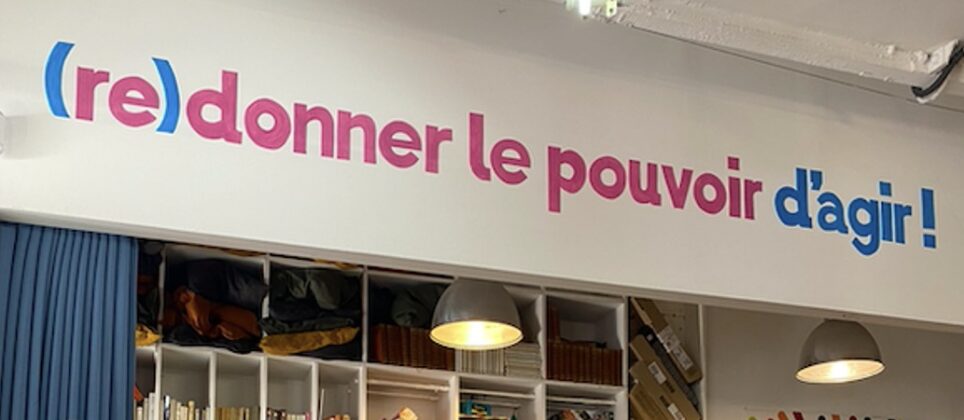
💡 In this article, we discuss the distribution of power through democratic decision-making processes.
At makesense, almost all employees can make any decision. Can you believe it? We’ll explain how it works!
🕐 Reading Time: 5 min
Summary
makesense is a decentralized organization, with power distributed among all members of the association. With power comes decision-making: all employees are free to make any decisions they deem relevant to the organization’s activities.
Example: One does not need to be an HR reference to make a decision on an HR topic.
1 condition: respecting the established decision-making processes that ensure the smooth functioning of the decentralized governance model.
There are 2 decision-making processes: solicitation of opinions and consent management.
🎯 The goal of these practices is to engage and empower employees through:
👉 Power-sharing
👉 Transparency of processes to align the collective and reduce misunderstandings/frustrations
👉 Contribution to strategic decisions
1️⃣ Solicitation of Opinions
"Solicitation of opinions is a decision-making process in which anyone is authorized to make any decision within their scope, but must solicit the opinions of those affected and subject matter experts."
Frédéric Laloux, Reinventing Organizations.
When Sophia (a fictional makesense employee) wants to make a decision that impacts her team or makesense, she initiates a solicitation of opinions. She gathers the people who will be impacted by this decision and the experts on the subject.
Example: Sophia wants to recruit a new person for her team, she gathers her team and the HR circle to present her idea and get their opinions on the matter.
The opinions collected are only advisory; Sophia is the sole decision-maker. After receiving their opinions, Sophia makes the decision that seems most appropriate to her and bears the responsibility for her decision.
NB: At makesense, in 90% of cases, the decision-making process used is the solicitation of opinions.
2️⃣ Consent Management
"Consent management is a decision-making process, derived from sociocracy, that ensures no one disagrees with the decision."
Epigo
When the decision impacts the life of all the organization’s employees (salary, team reorganization, new values…), Sophia will use the consent management process.
> Classic steps of the consent management process: Ideal for organizations with fewer than 15 employees – in-person
> Steps of the consent management process at makesense (120 employees):
Ideal for organizations with more than 15 employees – hybrid format
NB: this method focuses on the absence of disagreement (consent) rather than unanimity (consensus). At makesense, consensus is not sought. According to Anatole, an HR project manager we met, “consensus leads to inaction.”
To streamline the consent management process, it is useful to define the scope of relevant types of objections for an organization.
> But then, isn’t it risky to entrust power to everyone in the organization?
To prevent a decision that could endanger makesense, the organization is equipped with a “guardrail” body: the Water Line. It is the only decision-making body at makesense (other bodies are consultative).
It consists of 4 employees and 1 volunteer who are elected through a candidate-less election – no employee runs for election, all are eligible.
> Can all employees truly be decision-makers?
The answer is no. At makesense, the scope of decisions depends on the employee’s seniority:
→ For the first 6 months after your recruitment, you can make decisions about your team/project;
→ Between 6 and 12 months of seniority, you can make decisions that impact several teams/all of makesense;
→ 12 months of seniority, you can make decisions about your own development;
→ To be eligible for the Water Line: be at makesense for 1 year, project yourself for the next 2 years (candidate-less election every 2 years).
> Does this governance and decision-making model really work?
This governance model has existed since the creation of makesense, since 2011. It has hardly been modified.
Its great strength is its coherence with the decentralized organization model of makesense. However, an organization does not necessarily need to have a decentralized model to implement democratic decision-making processes. Anyone can try!
😯 When Coralie and Anatole from makesense told us about these processes, we thought it must take a long time to make a decision! Especially since the organization has 120 employees.
In reality, the framework and processes allow for streamlined decision-making, making it quick & efficient. Example: Meetings to decide on salary increases (consent management) have never exceeded 2 hours.
makesense has completely processed these decision-making processes to leave no room for misunderstanding. There is, for example, an online space dedicated to SDA (solicitations for opinions). All requests are listed and visible to everyone. They are reviewed one by one during regular meetings. There is also a person responsible for managing/following up on SDAs.

Authors: Vincent and Clémentine, The Managerial Odyssey 2024.
| Cookie | Duration | Description |
|---|---|---|
| cookielawinfo-checkbox-analytics | 11 months | This cookie is set by GDPR Cookie Consent plugin. The cookie is used to store the user consent for the cookies in the category "Analytics". |
| cookielawinfo-checkbox-functional | 11 months | The cookie is set by GDPR cookie consent to record the user consent for the cookies in the category "Functional". |
| cookielawinfo-checkbox-necessary | 11 months | This cookie is set by GDPR Cookie Consent plugin. The cookies is used to store the user consent for the cookies in the category "Necessary". |
| cookielawinfo-checkbox-others | 11 months | This cookie is set by GDPR Cookie Consent plugin. The cookie is used to store the user consent for the cookies in the category "Other. |
| cookielawinfo-checkbox-performance | 11 months | This cookie is set by GDPR Cookie Consent plugin. The cookie is used to store the user consent for the cookies in the category "Performance". |
| viewed_cookie_policy | 11 months | The cookie is set by the GDPR Cookie Consent plugin and is used to store whether or not user has consented to the use of cookies. It does not store any personal data. |